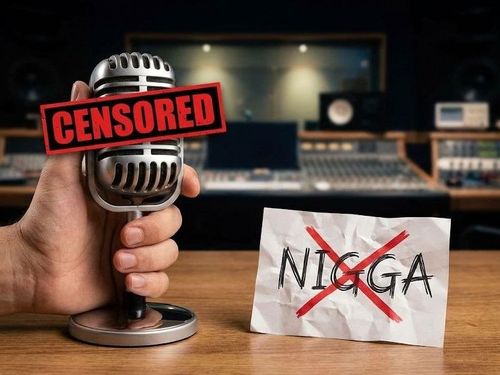The country's official newspaper has intensified its efforts to prevent cultural influences from South Korea by urging young North Koreans to refrain from using "dangerous" slang and embrace traditional ways of life.
An editorial published in the state-run newspaper Rodong Sinmun emphasized the importance of instilling a strong sense of ideology and revolutionary spirit in the younger generation for a promising future. According to the editorial, failure to do so would lead to the demise of the long-standing social systems and revolution.
"The ideological and cultural penetration under the colourful coloured [sic] signboard of the bourgeoisie is even more dangerous than enemies who are taking guns," it said.
In recent months, North Korea has tried to stamp out any "foreign influence" from spreading in the country.
Specifically, the newspaper cautioned young people against adopting South Korean slang and encouraged them to remain loyal to their "superior" language. It also advised against seeking inspiration from South Korea regarding fashion and hairstyles, highlighting the potential dangers of ideological and cultural infiltration disguised as a bourgeois influence.
In essence, the newspaper emphasized the significance of preserving North Korean traditions and ideologies while warning against the perceived threats posed by external cultural influences.
The recent warning to avoid South Korean cultural influences is not the first of its kind in North Korea. In the past, North Korean leader Kim Jong-un referred to South Korea's pop culture as a "vicious cancer" that corrupts the minds of young North Koreans. He expressed concern that if this "foreign influence" is not addressed, it could lead to the crumbling of North Korea like a damp wall. Considering that the North Korean leader has a 9-year-old daughter to whom he may relinquish power, the decision apparently was of personal interest to him.
Individuals caught consuming South Korean pop culture may face even harsher penalties as the regime intensifies its crackdown. According to reports from the BBC, those found possessing significant amounts of media from South Korea, Japan, or the United States could face the death penalty. Even watching such media could result in a prison sentence of up to 15 years.

This heightened campaign against cultural influences from South Korea reflects the increasing influx of external media and information entering North Korea. Analysts, such as David Maxwell from the Foundation for Defense of Democracies, suggest that this crackdown indicates the government's insecurity and fear of losing power.
Maxwell explains that outside information poses an existential threat to the regime's survival, which may explain the government's intensified efforts to block cultural influences and maintain control over the population.
According to Yang Moo-jin, a professor at the University of North Korean Studies, Kim Jong-un, who was educated in Switzerland, is fully aware of the potential for K-pop and Western culture to permeate among the younger generation and negatively impact North Korea's socialist system. Yang suggests that Kim recognizes the burden these cultural aspects could impose on the system. Therefore, by cracking down on them, Kim aims to prevent potential future troubles and maintain control over the population. The measures taken to stamp out these cultural influences are seen as a preventive strategy by Kim to safeguard the regime's stability.




